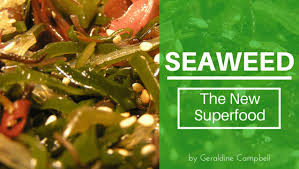Phase that Manchurian monster in

Is Seaweed the Next Superfood?
Fascinating Facts About Aquaculture
Blueberries. Quinoa. Kale. Kelp? Seaweed or better known as ‘sea vegetables’ are rapidly becoming one of the most sustainable marine farming products on the planet. This virtuous produce is literally a win-win-win for farmers, consumers and the planet. The big question is, does it taste good?
Off the coast of Connecticut, Bren Smith has an incredible aquaculture operation spanning three acres off the coast of Stony Creek. There he has crops of sea vegetables, oysters, scallops, mussels and clams growing in steady amounts. Why the desire to farm kelp? Well, it very well could be the next billion dollar industry.
Smith grows seaweed for three different purposes – fish food, human food and fertilizer. But there are hopes on the horizon to sell to skin care companies and perhaps a future in biofuel. The sea plants have so many incredible properties not the least of which is drawing nitrogen out of the ocean thereby making it cleaner and environmentally efficient.
By growing plants together with other marine life such as fish and shellfish, the seaweed can help keep the waters clean and free of contaminants. Growing these edible wonders requires zero tractors, no fertilizer and no irrigation. The ‘carbon’ footprint of this crop is actually negative! Also, seaweed is loaded with vitamins A, B and C plus iron and protein. It is an all purpose superfood.
Getting it to take off as a superfood will require some effort though. Not all seaweed tastes good. Big name chefs from the big cities like New York, Paris or San Francisco are starting to develop recipes and dishes for this unusual side dish. Once they start touting it as the next big thing, the seaweed farming industry will be in high production and the demand will be immediate. Good thing kelp grows fast at ¾ inch per day!
The only thing that will hold the industry back is regulations. There are currently fifteen farms that hold permits on the East Coast to grow kelp. On the West Coast, it is a different story. Without regulations in place, farmers are nervous to get started because they don’t want to lose investment should their farms not meet regulations once they are implemented.
With such a positive win for all those involved, let’s hope the regulations don’t hold up development with red tape.
LC DiNardi





Follow Us!